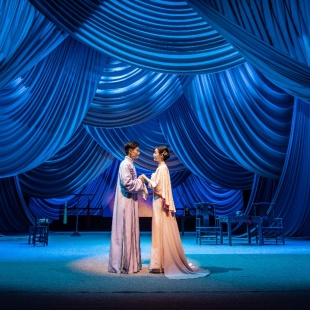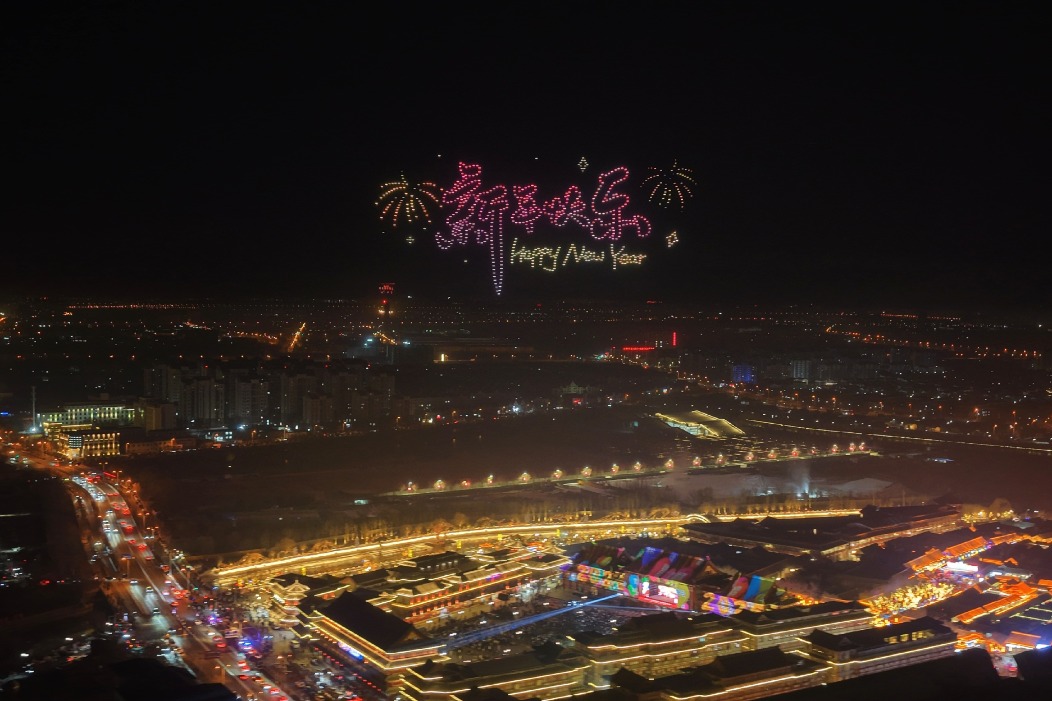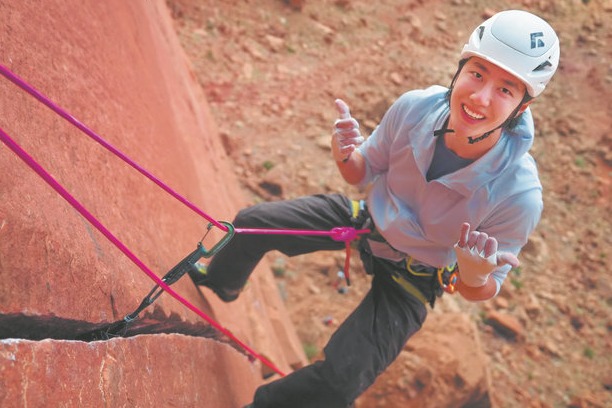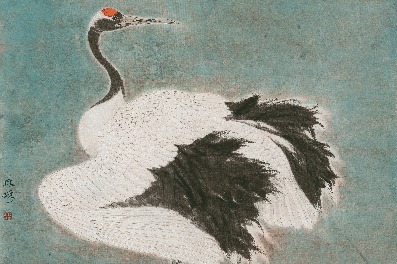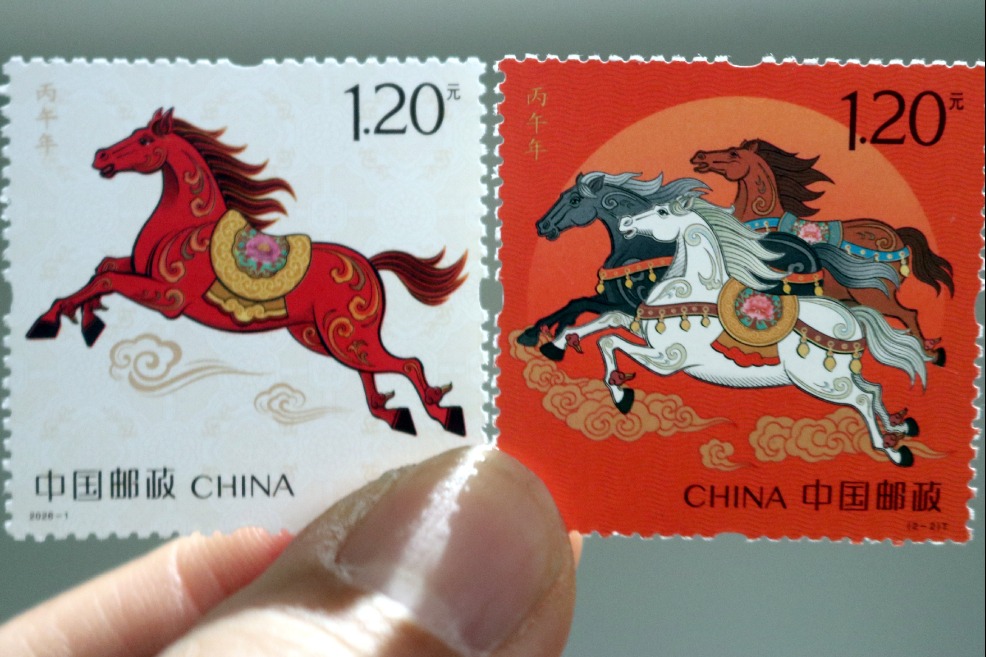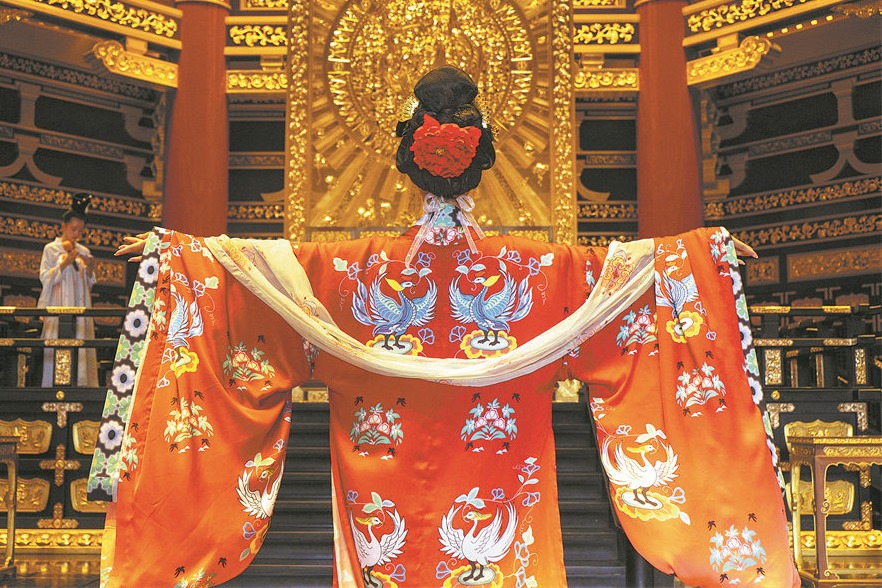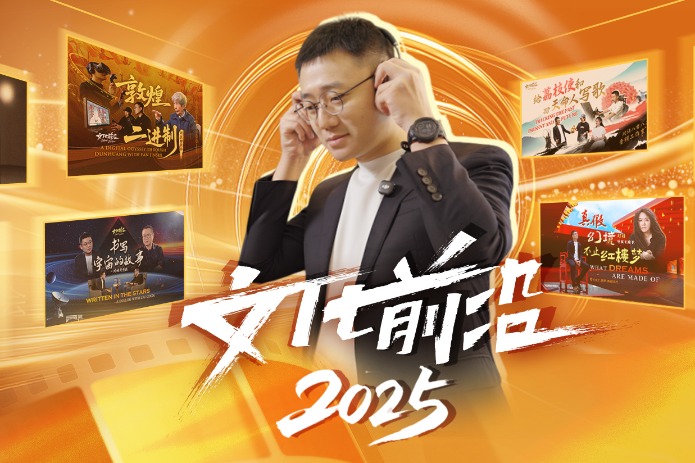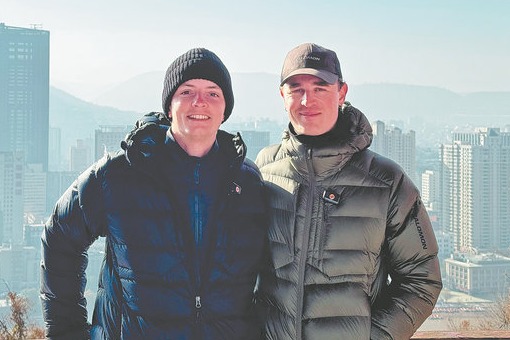Setting the stage for a new approach
Cascading curtains and soft backdrop lend play a simple vitality, Chen Nan reports.

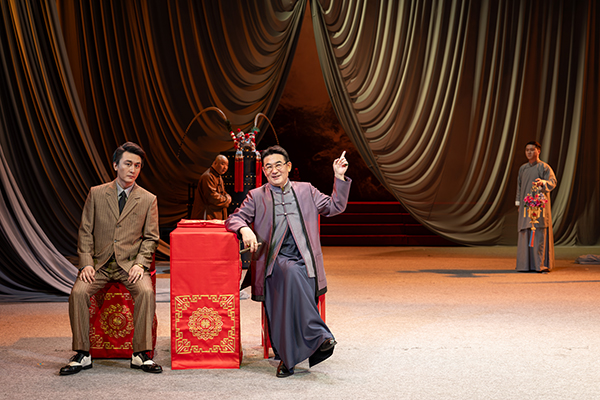
Liu Heng, a Kunqu actor from the Northern Kunqu Opera Theatre, plays the role of Wei, while actress Lu Lu of the Beijing People's Art Theatre portrays Yuchun, Wei's lover.
"In dance, emotions are often amplified through expansive, expressive movements. In traditional Chinese opera, such as Kunqu, emotions are more subtle — controlled, inward, and revealed through stylized gestures," explains 22-year-old Lu, who has been training as a dancer since childhood.
"Yuchun's character embodies an elegant, poetic femininity, shaped by both dance and traditional Chinese opera."
Liu, on the other hand, says that xiqu (Chinese opera) is highly formalized, relying on specific conventions such as singing, recitation and gesture.
The actors follow a set pattern of movements and expressions, and their speech is often accompanied by a distinctive singing style, known as changqiang, where the tone and pitch can be exaggerated.
In contrast, modern drama places a greater emphasis on naturalistic performance, and actors are expected to convey raw, genuine emotions, often reflecting the inner psychological states of their characters. This contrasts with the stylized and often larger-than-life performances seen in opera.


